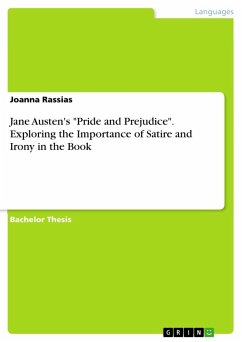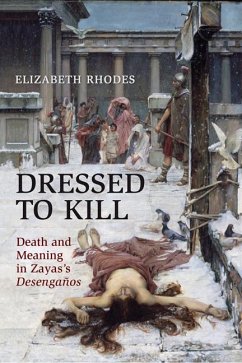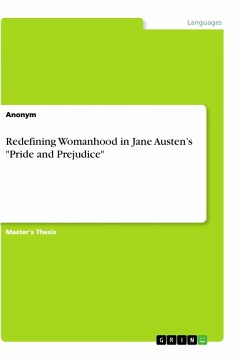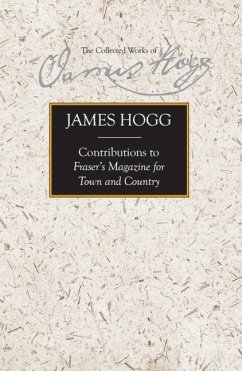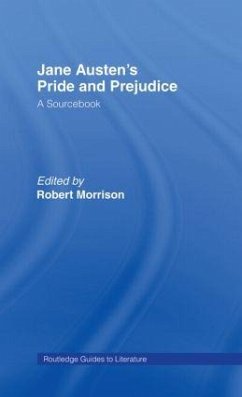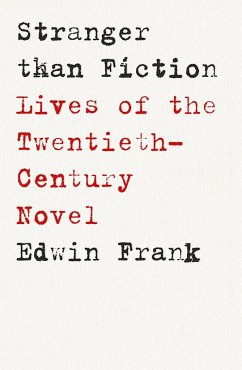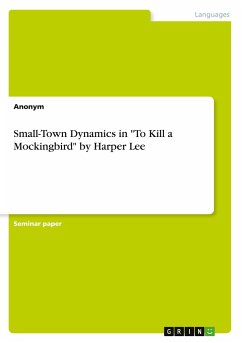
Small-Town Dynamics in "To Kill a Mockingbird" by Harper Lee

PAYBACK Punkte
0 °P sammeln!
Seminar paper from the year 2022 in the subject Literature - Comparative Literature, grade: 1,33, University of Flensburg (Anglistik), language: English, abstract: "The novel To Kill a Mockingbird" was written by Harper Lee and published in 1960. It continues to be the second most assigned text in the U.S. (Macaluso 279) and thus, is widely known. Amongst many other themes and motives, the role of the small town and its dynamics seem to be largely influential. This paper will consider the influence of small-town dynamics on the interpersonal relationships in "To Kill a Mockingbird", with a par...
Seminar paper from the year 2022 in the subject Literature - Comparative Literature, grade: 1,33, University of Flensburg (Anglistik), language: English, abstract: "The novel To Kill a Mockingbird" was written by Harper Lee and published in 1960. It continues to be the second most assigned text in the U.S. (Macaluso 279) and thus, is widely known. Amongst many other themes and motives, the role of the small town and its dynamics seem to be largely influential. This paper will consider the influence of small-town dynamics on the interpersonal relationships in "To Kill a Mockingbird", with a particular focus on the character Arthur ¿Boö Radley and his family. To do this, first, the American small town is considered. In accordance with the reality of the book, the focus will be set on the historical present of the novel which are the 1930s and the U.S. South. Correspondingly, the characteristics and dynamics of the small town are addressed afterwards, focusing on social hierarchies and prejudices, rumours, the hush-hush mentality, and unspoken norms and standards. The final theoretical part focuses on the representation of small towns in literature. In the practical section, the small-town dynamic in "To Kill a Mockingbird" will be examined in more detail, using examples from the novel to analyse whether Maycomb can be considered a typical American small town. Next, the question of the extent to which the Radley family can be aligned with small town etiquette will be examined, followed by a discussion of small-town virtues and their influence on Boo Radley and Scout Finch. The final section deals with the rumours surrounding Boo Radley. Through various examples, it will be shown that the small-town dynamic has a great impact on the interpersonal dynamics of the characters in Maycomb, especially in relation to the Radley family, and even influences those residents who would not typically act according to them. Overall, in keeping with the revolt from the village movement, Maycomb is portrayed in a way that highlights the drawbacks of small-town life.




